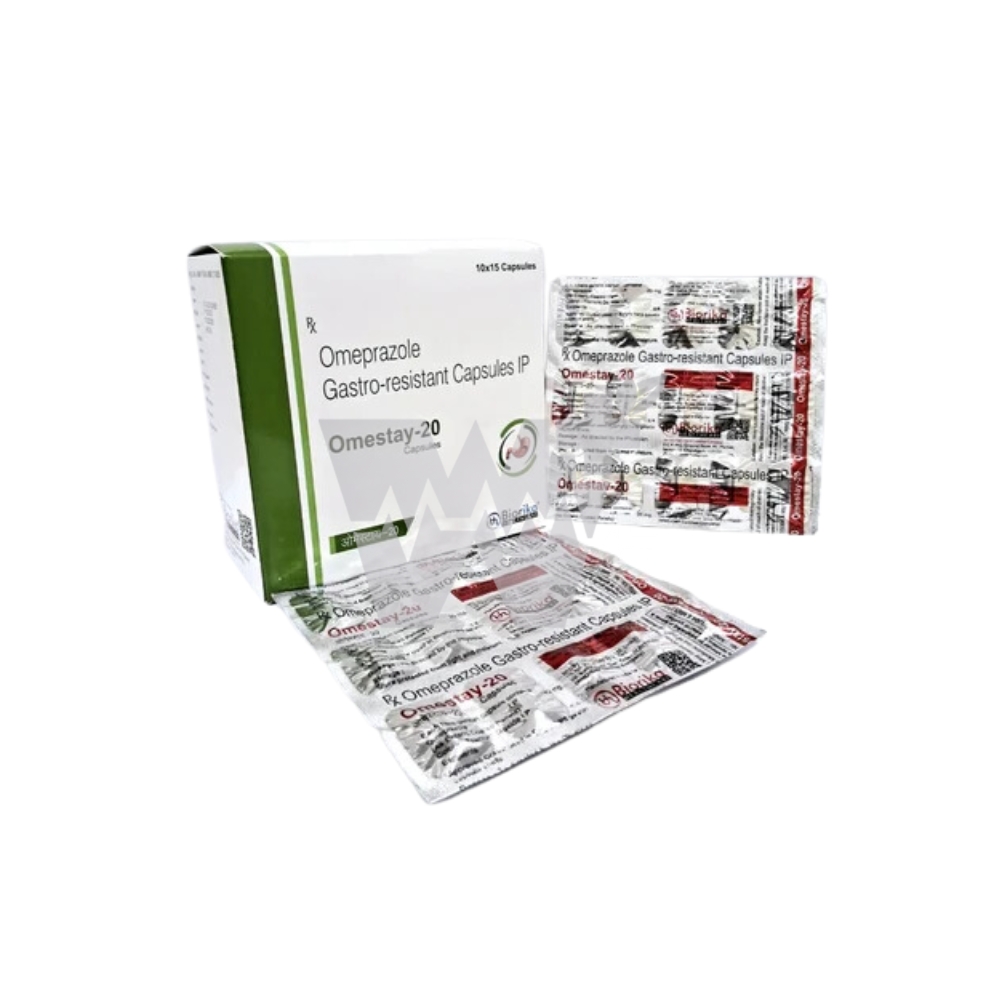



Introduction to Omeprazole
Omeprazole is a proton pump inhibitor (PPI) designed to reduce gastric acid secretion, providing relief from various acid-related disorders of the gastrointestinal tract.
Uses of Omeprazole
This medication is primarily indicated for:
Gastric Ulcers: Effective in the treatment and prevention of stomach ulcers.
Duodenal Ulcers: Assists in the healing of ulcers in the upper part of the small intestine.
Erosive Esophagitis: Treats inflammation of the esophagus caused by acid reflux.
Gastroesophageal Reflux Disease (GERD): Provides management for conditions where stomach acid frequently flows back into the esophagus.
Benefits of Omeprazole
Effective Acid Control: Significantly reduces gastric acid production, alleviating symptoms associated with acid-related disorders.
Promotes Healing: Supports the healing of erosive lesions in the gastrointestinal tract.
Improved Quality of Life: Reduces the frequency and severity of heartburn and related symptoms, enhancing overall patient comfort.
Mechanism of Action of Omeprazole
Omeprazole works by inhibiting the proton pump in the stomach lining, thereby decreasing the secretion of gastric acid. This action helps create a less acidic environment, facilitating the healing of ulcers and reducing reflux symptoms.